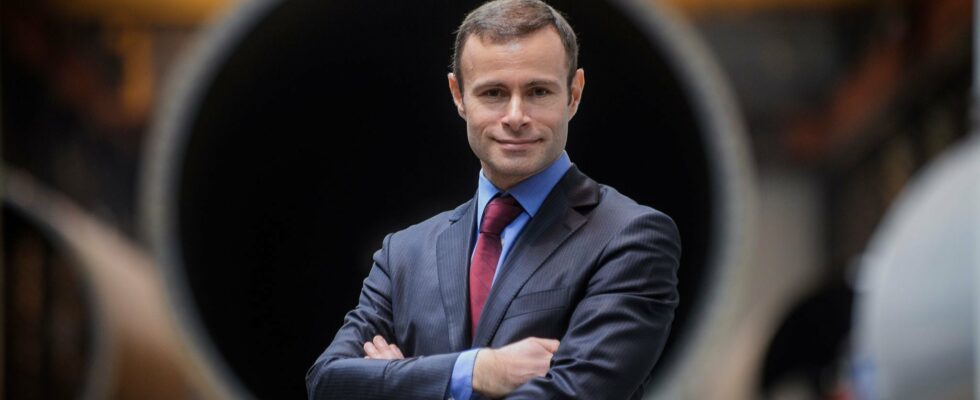And if the difficulties encountered by EDF on the segment of Small Modular Reactor (SMR) highlighted other actors with promising prospects? While a recent report pinning a general lack of technological maturity in nuclear start-ups, Calogena wants to embody the exception. First of all because it aims to produce low temperature heat and not electricity. A sector in which there is little competition. Then because this spin-off of the Gorgé group could take advantage of a significant tender in Finland next year. What greatly accelerate its development. Interview with Raphaël Gorgé, CEO of Calogena.
L’Express: The Nuward project recently wiped a setback. This reactor was however developed by a consortium of several leading companies. What makes you say that your project is better?
Raphaël Gorgé: I of course wish the best to all innovative nuclear projects in France. However, we are objectively the best project that we look at maturity or costs. The nuclear security authority says it. This good positioning is above all the segment we have chosen: that of the production of low temperature heat to heat the population of large cities. Compared to electricity production, competition is much less strong. Development is also simpler. Because if you want to produce electrons, you need to add a turbine and accept a significant loss of yield compared to the initial fission process.
Unlike other France 2030 winning projects, we also don’t need to create our own fuel and therefore the sector that goes with it. These elements save a lot of time both in development and certifications. So we arrive at an extremely inexpensive reactor project, which will get out of heat at a very competitive price. This is what matters at the end. In France, thanks to our solution, we can get out of the heat at 60 euros per megawatt hour without a subsidy. Knowing that the average price is about 108 euros today, including financial aid.
How many competitors do you have in your field?
Apart from a Finnish company, we are the only ones on this niche! However, there is an important market. In Europe, heat networks operate more than 90 % with carbon energy. It is completely massive. Basically, to heat up, we burn gas, coal, a little bit of fuel oil, biomass, household garbage … But each time we do, we emits CO2. Our idea is to replace these power plants with calogena modules to produce cheaper and decarbonated heat, at a fixed price which does not depend on the goodwill of the supply of gas or wood. We believe that there is room for 500 Calogena modules in Europe, excluding countries not favorable to nuclear. At 100 million euros per module of 30 MW, we can create a company generating a turnover of several billion euros!
Which countries are you targeting as a priority?
In France, around 7 % of the population is connected to a heat network. This activity develops quickly. However, Finland is also a country that interests us a lot. This is the first to have launched a nuclear call for urban heat. There, 90 % of the inhabitants are already connected to the heat network. If we are selected, we could have an order from the beginning of 2027. It is an extremely short horizon at the scale of a nuclear start-up!
Will the population accept SMRs near cities?
This is the biggest problem of SMRs. The concept that we develop is very close to that of “pool reactors”, these experimental installations already present in many large cities (there is for example one in Grenoble). The water in which the reactor bathes is enough to completely annihilate any risk of fusion of the heart. An essential element of safety. Admittedly, it may not be enough to reassure the inhabitants. Some oppose wind turbines or photovoltaic fields, so I do not expect an overflowing enthusiasm. But the question to ask is as follows: to heat, do we prefer, a wooden power plant with the many truck passages that go with it for the supply of the installation? Or do you want a safe, sovereign solution, with a constant price of heat and which does not emit CO2? There will always be refractory people. However, there is a major difference between our project and the others. The inhabitants will be the only beneficiaries of this installation. Through it, they will have cheap heating at a guaranteed price. France has already decarbonized its electricity in the past. It’s time to tackle the heat market.
.
